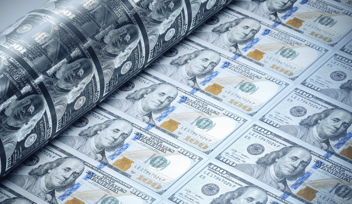The American economy is experiencing its darkest hour since the Great Depression of 1929. Moreover, riots have broken out in many cities following the death of George Floyd. The chances of Donald Trump being re-elected are diminishing every day.
On Tuesday, 3 November 2020, Americans will take to the ballot box to elect their next president. In the past few weeks, the polls have shown Democratic candidate Joe Biden overtaking incumbent Donald Trump, slowly but surely. He has spoken out decisively against racism, while Trump appears to have done nothing but sow discord. Moreover, many Americans are concerned by the fact that their president is trivialising the risks associated with the spread of Covid-19. By way of example, he intends to hold the Republican convention in a crowded stadium. Indeed, the convention is due to take place in North Carolina, but it appears that local authorities would rather prevent an incidence of super-contamination than pander to the president. But what can we expect if Joe Biden wins the election and assumes office?
A crook in China
Anyone hoping that international relations will improve quickly may wish to reserve judgement for the time being. It is far from certain, for example, that Biden will bury the hatchet in the trade war with China. At a campaign meeting at the end of February, he boasted that he had spent more time with Xi Jinping than any other world leader during his vice-presidency under Barack Obama. In his view however, the Chinese President is by no means an advocate of democracy, and is, in fact, a crook. In making these statements, Biden’s tone shows a marked break with past relations. Four years ago, he proclaimed that he still maintained amicable ties with Jinping, and just last year, he claimed that the rise of the Chinese economy would certainly not pose a threat to the United States.
It's the economy...
For financial and foreign exchange markets, the economic measures taken by the US president obviously take precedence over international policy. In recent years, Trump endeavoured to boost economic growth in many ways through measures such as tax cuts. Chances are high that Biden will take this one step further. Unemployment has risen to its highest level in more than forty years due to the ongoing pandemic. As the social safety net in the US is hardly as extensive as that in Europe, it is very important that the economy quickly receives a substantial boost.
Will Trump's wish be fulfilled?
If tens of millions of Americans do not earn enough to pay their rent or their mortgage – or even to feed themselves – for a long period of time, the damage is incalculable. Democrats have traditionally been prepared to provide more direct aid, and to do so more frequently, while Republicans prefer to rely on imbalances dissipating organically when the economy is given free rein. An example of this is Trump’s decision to cancel the food stamps programme, which was made even before the onset of the Covid-19 crisis. If Biden wins the election and the economy is not yet up to speed when he moves into the White House on 20 January 2021, there’s a strong chance he will implement a far-reaching programme to boost the economy. This could certainly fuel inflation expectations and cause the dollar to come under considerable pressure. Then perhaps, Trump’s long-held wish for a weaker currency will be fulfilled.
Joost Derks is a currency specialist at iBanFirst. He has over twenty years of experience in the forex world. This column reflects his personal opinion and is not intended as professional investment advice.
Topics

-2.jpg)




